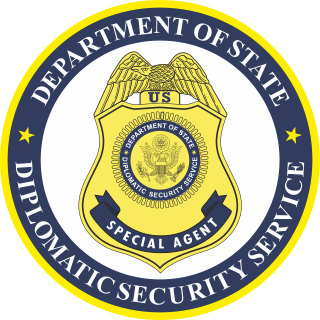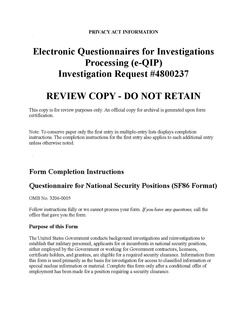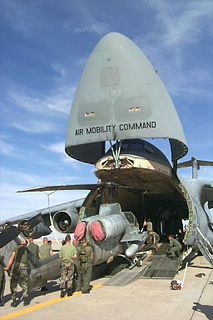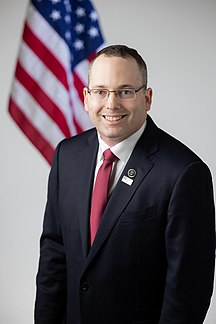Concerned Foreign Service Officers (CFSO) is a group of current and former Foreign Service and Civil Service employees of the U.S. Department of State, cofounded by William Savich and Daniel M. Hirsch, created to investigate, document and expose alleged misuse of the security clearance process by the State Department's Diplomatic Security Service (DSS).

The United States Foreign Service is the primary personnel system used by the diplomatic service of the United States federal government, under the aegis of the United States Department of State. It consists of over 13,000 professionals carrying out the foreign policy of the United States and aiding U.S. citizens abroad.
Daniel M. Hirsch is an American Foreign Service Officer, currently the Senior Management Advisor to the Near East and South and Central Asia Bureaus of the U.S. Department of State. From July 2009 to July 2013 he served as State Vice President of the American Foreign Service Association. In that role, he was the primary labor-management negotiator representing roughly 12,000 State Department members of the American Foreign Service and was the senior vice president of the professional association representing the entire American Foreign Service.

The United States Diplomatic Security Service is the federal law enforcement and security arm of the United States Department of State. Its main duties are to secure the integrity of U.S. travel documents, namely against visa and passport fraud, and to help facilitate U.S. foreign policy by protecting diplomatic assets, personnel, and information.
CFSO's concern is the possibility that the clearance process can be used to circumvent Federal personnel regulations, to bypass equal employment opportunity laws and to punish dissenters and whistle blowers within the agency.
The group investigates and documents allegations of improper and coercive interview techniques, fraudulent statements in investigative reports, suppression or destruction of evidence, improper seizure of personal property, misapplication of security regulations and similar allegations in relation to DSS cases.
The group considers that such acts would threaten the national security of the United States by reducing the reliability and integrity of DSS operations and by inhibiting the expression of dissenting views within the Foreign Service. Concerned Foreign Service Officers is allied with the National Security Whistle Blowers Coalition.
National security of the United States is a collective term encompassing the policies of both U.S. national defense and foreign relations.
A whistleblower is a person who exposes any kind of information or activity that is deemed illegal, unethical, or not correct within an organization that is either private or public. The information of alleged wrongdoing can be classified in many ways: violation of company policy/rules, law, regulation, or threat to public interest/national security, as well as fraud, and corruption. Those who become whistleblowers can choose to bring information or allegations to surface either internally or externally. Internally, a whistleblower can bring his/her accusations to the attention of other people within the accused organization such as an immediate supervisor. Externally, a whistleblower can bring allegations to light by contacting a third party outside of an accused organization such as the media, government, law enforcement, or those who are concerned. Whistleblowers, however, take the risk of facing stiff reprisal and retaliation from those who are accused or alleged of wrongdoing.

Classified information is material that a government body deems to be sensitive information that must be protected. Access is restricted by law or regulation to particular groups of people with the necessary security clearance and need to know, and intentional mishandling of the material can incur criminal penalties. A formal security clearance is required to view or handle classified documents or to access classified data. The clearance process requires a satisfactory background investigation. Documents and other information must be properly marked "by the author" with one of several (hierarchical) levels of sensitivity—e.g. restricted, confidential, secret and top secret. The choice of level is based on an impact assessment; governments have their own criteria, which include how to determine the classification of an information asset, and rules on how to protect information classified at each level. This often includes security clearances for personnel handling the information. Although "classified information" refers to the formal categorization and marking of material by level of sensitivity, it has also developed a sense synonymous with "censored" in US English. A distinction is often made between formal security classification and privacy markings such as "commercial in confidence". Classifications can be used with additional keywords that give more detailed instructions on how data should be used or protected.
A security clearance is a status granted to individuals allowing them access to classified information or to restricted areas, after completion of a thorough background check. The term "security clearance" is also sometimes used in private organizations that have a formal process to vet employees for access to sensitive information. A clearance by itself is normally not sufficient to gain access; the organization must also determine that the cleared individual needs to know specific information. No one is supposed to be granted automatic access to classified information solely because of rank, position, or a security clearance.

The Bureau of Diplomatic Security, more commonly known as Diplomatic Security, or DS, is the security and law enforcement arm of the United States Department of State. DS is a world leader in international investigations, threat analysis, cyber security, counterterrorism, security technology, and protection of people, property, and information. DS's mission is to provide a safe and secure environment for officials to carry out U.S. foreign policy.

The Defense Security Service (DSS) is a federal security agency of the United States Department of Defense (DoD). Within areas of DoD responsibility, DSS is tasked with facilitating personnel security investigations, supervising industrial security, and performing security education and awareness training. DSS is an authorized Federal Security Agency. Industrial Security Representatives and Information System Security Professionals are credentialed government agents. Originally known as the Defense Investigative Service (DIS), DIS was established in 1972. DSS changed its name from DIS in 1999.
The National Security Whistleblowers Coalition (NSWBC), founded in 2004 by former FBI translator Sibel Edmonds in league with over 50 former and current United States government officials from more than a dozen agencies, is an independent, nonpartisan alliance of whistleblowers who have come forward to address weaknesses of US security agencies.
The United States government classification system is established under Executive Order 13526, the latest in a long series of executive orders on the topic. Issued by President Barack Obama in 2009, Executive Order 13526 replaced earlier executive orders on the topic and modified the regulations codified to 32 C.F.R. 2001. It lays out the system of classification, declassification, and handling of national security information generated by the U.S. government and its employees and contractors, as well as information received from other governments.

Corruption in the post-colonial government of Kenya has a history which spans the era of the Jomo Kenyatta and Daniel arap Moi's KANU governments, Mwai Kibaki's PNU government and the current Uhuru Kenyatta's Jubillee Party government. In the Corruption Perceptions Index 2012 Kenya is ranked 139th out of 176 countries for corruption, tied with Azerbaijan, Nepal, Nigeria, and Pakistan.

Regional Security Officer (RSO) is the title given to special agents of the U.S. Diplomatic Security Service (DSS) serving overseas. The RSO is the principal security attaché and advisor to the U.S. Ambassador at American embassies and consulates. Working for the U.S. Department of State as special agents, RSOs are also considered officers within the State Department acting as specialists within the United States Foreign Service. The RSO is also the senior law enforcement representative at a U.S. Embassy.
The Canadian Afghan detainee issue concerns Government of Canada and/or the Canadian Forces (CF) knowledge of abusive treatment of detainees in Afghanistan. The abuse occurred after Afghans were detained by Canadian Forces, and subsequently transferred to the Afghan National Army (ANA) or the Afghan National Directorate of Security (NDS) during the War in Afghanistan. The issue has sparked heated debate since Article 12 of the Third Geneva Convention states that "the Detaining Power [Canada] is responsible for the treatment given [to prisoners of war]". If the allegations of torture are true it would mean Canada is guilty of war crimes.

The CIA publishes organizational charts of its agency. Here are a few examples.

e-QIP is a secure website managed by OPM that is designed to automate the common security questionnaires used to process federal background investigations. e-QIP was created in 2003 as part of the larger e-Clearance initiative designed to speed up the process of federal background investigations conducted by OPM's Federal Investigative Services (FIS). e-QIP is a front end data collection tool that has automated the SF-86, questionnaire for national security investigations as well as the SF-85P, the questionnaire for public trust positions. e-QIP allows applicants for federal jobs to enter, edit and submit their investigation data over a secure internet connection to their sponsoring agency for review and approval.

The Department of Defense Whistleblower Program in the United States is a whistleblower protection program within the U.S. Department of Defense (DoD) whereby DoD personnel are trained on whistleblower rights. The Inspector General's commitment fulfills, in part, the federal mandate to protect whistleblowers. It also administers the Defense Intelligence Community Whistleblower Protection Program (DICWP), as a sub-mission for the intelligence community. The Inspector General's Defense Criminal Investigative Service also conducts criminal investigations which rely, in part, on Qui Tam relators.
Paula Coughlin was a lieutenant and naval aviator in the United States Navy. She was a whistleblower who played a role in opening investigations into what was known as the Tailhook scandal.
USIS was a US corporation that provided security-based information and service solutions to both government and corporate customers, in the United States and abroad. Its corporate headquarters were in Falls Church, in Greater Washington, D.C. Training took place in Boyers, PA. USIS was a part of Altegrity Inc., a company headquartered in the Falls Church area that was owned by Providence Equity Partners.

Everett Stern is an Intelligence Director and Founder of Tactical Rabbit. He was also a 2016 United States Senate candidate, known as the whistleblower in the HSBC money laundering scandal. He uncovered billions of dollars of illegal money laundering transactions which led to an SEC investigation and a $1.92 billion fine against HSBC in 2012.
The NSE co-location scam relates to the market manipulation at the National Stock Exchange of India, India's leading stock exchange. Allegedly select players obtained market price information ahead of the rest of the market, enabling them to front run the rest of the market, possibly breaching the NSE’s purpose of demutualisation exchange governance and its robust transparency-based mechanism. The alleged connivance of insiders by rigging NSE’s algo-trading and use of co-location servers ensured substantial profits to a set of brokers. This multi-dollar, widespread market fraud came to light when markets' regulator, the Securities and Exchange Board of India (SEBI), received the first anonymous complaint through a whistle-blower's letter in January 2015. The whistle-blower alleged that trading members were able to capitalise on advance knowledge by colluding with some exchange officials. The overall default amount through NSE’s high-frequency trading (HFT) is estimated to be 50,000 crores over five years.









